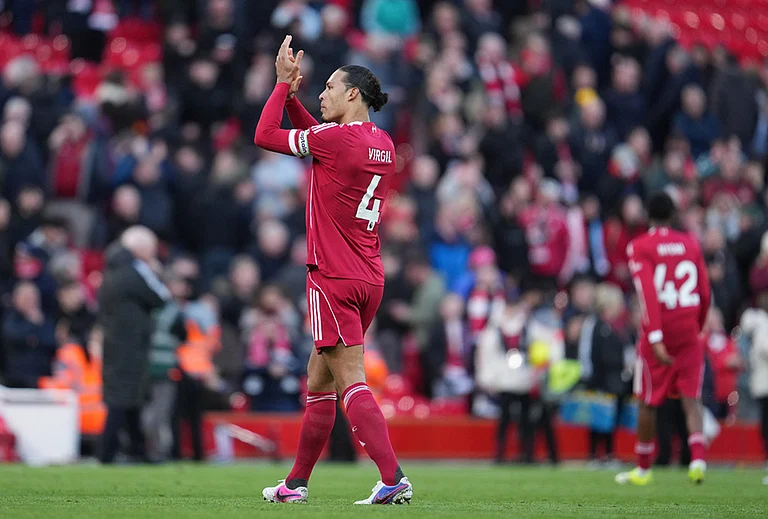Rishi Sunak has become the first Prime Minister of colour, the first Indian-origin Prime Minister as also the first Hindu Prime Minister of the UK. The news hit the world on the day of an Indian festival, Diwali. Most of the Indians celebrated this news as a Diwali gift that marks India’s revenge on the Britishers, as a revenge of an erstwhile colonized country on what once was the Empire. Some are, of course, critical of Rishi Sunak and of the support that he, in particular, is receiving from the Hindu right wing. They have also been accused of double standards as they label Sonia Gandhi as a foreigner in India and take pride in a ‘foreigner’s’ becoming the Prime Minister of the UK. Questions have been raised about Rishi Sunak’s identity as well. Whereas some have pointed out that he should be considered a British citizen, some have dug out the fact that his grandfather was born in a place in undivided India which now is a part of Pakistan and claimed that in no way he is an Indian. Some have also focused on his wealth (he is even richer than King Charles III) and ‘elite’ upbringing (with the background of Oxford and Stanford universities) and marriage (his wife Akshata Murty is the daughter of the billionaire founder of Indian tech giant Infosys) arguing that he could never be the representative of the poor and the needy. In between these two extremes, where should sensible, progressive and liberal Indians stand? Should they give three cheers for Rishi Sunak?
None can deny the fact that Rishi Sunak has made it to history. Even in the beginning of the new millennium, nobody could imagine that an Indian-origin leader would become a Prime Minister in the UK in 20 years’ time. This indeed is an event in the history of multicultural Britain. Welcoming Rishi Sunak, Lord Dolar Popat, a veteran member of the conservative Tory party has said, “This country is not racist. For Rishi to reach this stage, it proves that merit is valued.” Ms Penny Mordaunt, another member of the party, also tweeted showing her ‘full support’ to Rishi and claiming that the decision spotlights the “diversity and talent” of the party. In fact, Rishi Sunak has also always been aware of his British Indian identity. A few years ago, in an interview with an Indian newspaper, he clearly mentioned that he ticked the box of ‘British Indian’ in the census and said, “British Indian is what I tick on the census, we have a category for it. I am thoroughly British, this is my home and my country, but my religious and cultural heritage is Indian, and my wife is Indian. I am open about being a Hindu.” This statement of Sunak, of course, underlines his identity as a member of a minority diasporic group in Britain but at the same time lays bare a few other facts.
Sunak has always been overtly proud of his religious identity. As the first UK parliamentarian (as an MP from Yorkshire) he took oath on the Bhagavad Gita in the Parliament. As the Finance Minister of Boris Johnson’s government, he lit Diwali diyas in his residence in Downing Street. He used to keep an idol of Lord Ganesha on his desk in his office as well. When he had to quit that office for making space for the then Prime Minister Boris Johnson who fell sick and had to use Sunak’s office, he took out all his stuff from his office except the idol of Ganesha. He explained this decision to a newspaper saying, “My wife was insistent we left it there when the PM was sick. He used my office in No.11 because he lives above, and it was easy for him to have this walled-off area where he could come up and down. And so he was using my office in No. 11, and I took all my stuff out – but Akshata was insistent we left that there for him, to keep an eye on him as well.” A video in which Rishi Sunak was seen to worship the Gau Mata and do an arati for her also became viral in the recent past. Earlier, when fake news spread portraying him as a beef-eater and not as an ideal Hindu, he categorically denied the charge and said that he does not consume beef for religious reasons. In his campaign as a prime ministerial candidate, he also, time and again, highlighted his Hindu identity. In August, in a meeting with British Indian Conservative Party members, he was handed over a few gold-plated deities taken straight from India by Amita Mishra, a Trustee of Shree Jagannatha Society UK. A Hindu pandit chanted a victory shloka from the Bhagavad Gita as the idols were handed over to Rishi Sunak ceremonially on stage.
It is also interesting to note that in the same meeting, Rishi Sunak said that Britain would need to be very ‘robust’ to fight Chinese ‘aggressiveness.’ He said, “China and the Chinese Communist Party represent the biggest threat to our economic and thereby national security that this country has faced in a long time and we need to be alive to that.” Such a stance is not at all surprising for a right-wing politician to whom a transwoman is not a woman. In an interview, when asked whether he considers a transwoman a woman, his answer was a clear and unambiguous ‘no.’ He, in fact, even has said that he would “protect the words man, woman and mother.”
Rishi Sunak’s occupation of No 10 should not also be considered an all-out victory for British multiculturalism. The history of multiculturalism in Britain has seen ups and downs. Post-Second World War Britain witnessed the entry of three kinds of migrants into the country: European War and Cold War refugees (e.g. Poles and Hungarians); migrant workers from Southern Europe (such as Italians); and Empire/Commonwealth migrants from the Caribbean and South Asia. In the context of rapidly changing demography and socio-cultural realities of Britain, it was the then Labour minister, Roy Jenkins, who first highlighted the philosophy of multiculturalism in 1967 when he said, “Integration is perhaps a rather loose word. I do not regard it as meaning the loss, by immigrants, of their own national characteristics and culture. I do not think we need in this country a ‘melting pot,’ which will turn everybody out in a common mould...I define integration, therefore, not as a flattening process of assimilation but as equal opportunity, coupled with cultural diversity, in an atmosphere of mutual tolerance.”
Such a stance, however, was questioned several times in the UK by the politicians, the first of whom was Enoch Powel who in 1968 in his infamous ‘rivers of blood’ speech said, “The West Indian or Asian does not, by being born in England become an Englishman. In law he becomes a United Kingdom citizen by birth; in fact he is a West Indian or an Asian still. Unless he be one of a small minority – for number, I repeat again and again, is of the essence – he will by the very nature of things have lost one country without gaining another, lost one nationality without acquiring a new one.” There was an echo of this speech (though in more measured terms) in the words of Margaret Thatcher who in 1978, just before becoming the Prime Minister, said, “People are really rather afraid that this country might be rather swamped by people with a different culture... We are a British nation with British characteristics. Every country can take some small minorities and, in many ways, they add to the richness and variety of this country. The moment the minority threatens to become a big one, people get frightened... We are not in politics to ignore people’s worries: we are in politics to deal with them.”
What is deeply worrying about Rishi Sunak is his admiration for Margaret Thatcher whom he seems to idolize. So, whether Rishi Sunak would be the representative of all the diasporic communities of the UK or only of the rich, influential Indian Hindu migrants, time will tell. He has performed well as the Finance Minister and has also said in a BBC interview, “I would rather lose having fought for the things that I passionately believe are right for our country, and being true to my values, than win on a false promise.” We need to wait to see whether he does what is right for the UK not only in terms of economy but also of the diversity of the country.
E. M. Forster, in a humorous and ironic way, instead of three, gave two cheers for democracy. Rishi Sunak’s ideological stance and his past make the sensible, liberal and progressive Indians give not even two but only one cheer for him.
(Angshuman Kar is Professor, the Department of English and Culture Studies, and Director, Centre for Australian Studies, The University of Burdwan, India. He is also the Former Secretary, Eastern Region, Sahitya Akademi, India's Official Academy of Letters.)


























